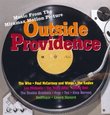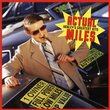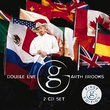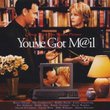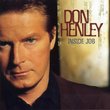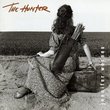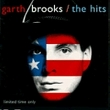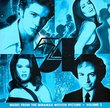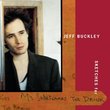| All Artists: Soundtrack Title: Bobby Members Wishing: 0 Total Copies: 0 Label: Island Original Release Date: 1/1/2006 Re-Release Date: 11/21/2006 Album Type: Soundtrack Genres: Pop, R&B, Soundtracks Style: Motown Number of Discs: 1 SwapaCD Credits: 1 UPC: 602517142596 |
Search - Soundtrack :: Bobby
 | Soundtrack Bobby Genres: Pop, R&B, Soundtracks
|
Larger Image |
CD DetailsSimilar CDsSimilarly Requested CDs
|
CD ReviewsMelancholy Sounds of an Era Lonnie E. Holder | Columbus, Indiana, United States | 02/09/2007 (5 out of 5 stars) "When we watch movies, the plot and the pictures make us think. Music cuts through all that and touches our soul. The songs on this soundtrack were intended to evoke the era and a measure of compassion for the second tragedy to befall the Kennedy family, and the third tragedy to befall our country in the same period of time. The songs are frequently melancholy and capture a spirit that mere words can only describe. This CD opens with short speech by Robert Kennedy. This introduction provides a reference for the remainder of the CD. Mary J. Blige and Queen of Soul Aretha Franklin open this collection with a marvelous gospel song, "Never Gonna Break My Faith," with the Harlem Boys Choir providing backing vocals. This song was written by Bryan Adams, Eliot Kennedy and Andrea Remanda for this movie. Fans of Blige and Franklin will love this song. Awesome new song, classic sound; need I say more? The 1965 Smokey Robinson and the Miracles classic "Tracks of My Tears" is next. The Supremes 1964 hit "Come See about Me" follows. I am unfamiliar with the 1966 Shorty Long song "Function at the Junction," though the style of the song places it solidly in the 1960's. The original version of "Grazin' in the Grass," an instrumental by Hugh Masekela, is the sixth track on this CD. I am much more familiar with the vocal version by Friends of Distinction than this original version. "I Was Made to Love Her" is the seventh track on this CD and was a 1967 release by music miracle Stevie Wonder. The mid-1960's was an era of musical revolution. The Moody Blues released "Days of Future Passed" in 1967, heralding the beginning of art rock and progressive rock. "Forever Afternoon (Tuesday?)" was one of the hits from that ground-breaking album. The Los Bravos song "Black Is Black" follows. Los Bravos is unique in their own way as they are a Spanish rock group with a hit song in the U.S. Marvin Gaye's 1965 song "Ain't That Peculiar," which was written by Smokey Robinson, and three Miracles, is the tenth track. Another Aretha Franklin hit, 1965's "Baby I Love You," follows. Demi Moore manages to shock everyone by belting out a unique and well done version of "Louie Louie." Who knew? I was expecting anything but a highly interpretive song that makes me reconsider my opinion of Ms. Moore. Ms. Moore's version is much slower than the original, but the style is very retro and could easily have been from the late 1950's or the early 1960's. The Mark Isham instrumental "No One Left but Bobby" just tears my heart out. I must be getting old; I keep thinking what might have been. Simon & Garfunkel are the final song on this CD. What song could it have been but "The Sounds of Silence"? The closing track is the now ironic speech by Bobby Kennedy, "On the Mindless Menace of Violence," backed by the Mark Isham instrumental, "The Mindless Menace of Violence." This track is a fitting and poignant coda to this album that captures the essence of tragedies the United States faced in the 1960's. Those tragedies are embodied in the deaths of John F. Kennedy, Martin Luther King, and Bobby Kennedy, but they extend to so much more: the tragedy of Viet Nam, the tragedy of Kent State, the tragedy of segregation and race riots. We all fondly remember hippies, flower power and the summer of love, but many of us have forgotten the pain we experienced as our country grew outside the tidy little world of a chicken in every pot and a television in every living room. It is painful to remember, but before we walk down these roads again, we should. Though not in the album, Senator Edward (Ted) Kennedy concluded his eulogy for his brother by quoting George Bernard Shaw, "Some men see things as they are and say `Why?' I dream things that never were and say, `Why not?'" Please think about this phrase when you listen to this album. Then go out and make the future a better place. " Where's the score soundtrack Marty Milton | Urbana, IL USA | 04/30/2007 (1 out of 5 stars) "I can never understand why record companies consider already released music as a soundtrack. The movie contain great music composed by Marc Isham, with trumpet solos by the accomplished Tim Morrison. Tim Morrison was the solo trumpet in JFK, Born on the Fourth of July, Saving Private Ryan, and Apollo 13, to name a few.
It is a real shame that they did not include more of the score in this soundtrack." |

 Track Listings (15) - Disc #1
Track Listings (15) - Disc #1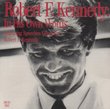
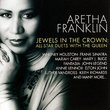
![Bobby [Original Motion Picture Score]](https://nationalbookswap.com/cd//m/43/4143/1244143.jpg)
